Chiropractic Treatment in Tunisia
Search and Compare the Best Clinics and Doctors at the Lowest Prices for Chiropractic Treatment in Tunisia
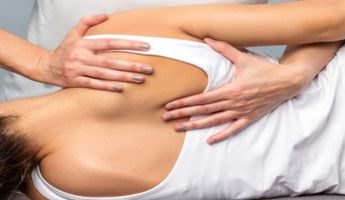
Find the best clinics for Chiropractic Treatment in Tunisia
No pricing info available
Indonesia offers the best prices Worldwide
Price: $ 3
From 37 verified reviews
Saoussen Saidani, 13 June 2020
My 12 year old daughter Lina has had surgery Pancreas tumorHeavy Operation which went very wellI thank all the staff of the Pasteur clinic for their hospitality and their hygiene ...I thank the doctors who attended the operation and in particular the surgeonAYADI Sofiene who accompanied us from the start for his professionalism as well as DR Walid Miraoui. The discovery of this tumor is done in a very short time a week to manage allThe support of Surgeon Ayadi Sofiene was really perfect as a parent we were reassured and above all in confidence.And especially I thank them for the moral support of My Daughter Lina who kept the smile until the end and who It is found in Total confidenceThank you so much for saving our childMr er Mrs Saidani
- Home
- Tunisia
Compare Before & After Photos of _procedure_photos.phpChiropractic Treatment
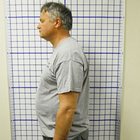
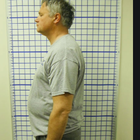
Full-side view
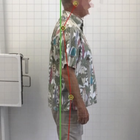
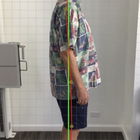
Full-side view
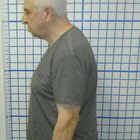
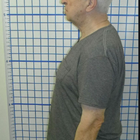
Full-side view
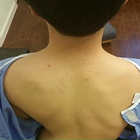
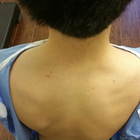
Full-side view
WHY US?
At Medijump, we're making medical easy. You can search, compare, discuss, and book your medical all in one place. We open the door to the best medical providers worldwide, saving you time and energy along the way, and it's all for FREE, no hidden fees, and no price markups guaranteed. So what are you waiting for?

Free

Best Price

Widest Selection

Risk-Free
What you need to know about Chiropractic Treatment in Tunisia
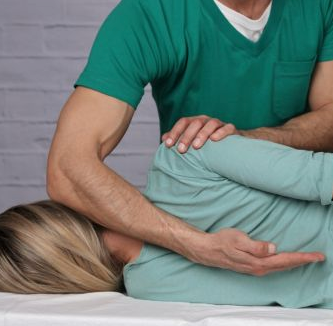
Chiropractic treatment is a type of procedure where a trained and licensed practitioner (chiropractor) uses their hands to help relieve problems with the joints, muscles, and bones. It is considered a type of complementary and alternative medicine (CAM), meaning it is not a conventional medical treatment. Sometimes, the procedure is used in conjunction with conventional medical treatment.
Chiropractic treatment is mainly used to help relieve painful muscles and joints, such as back pain, shoulder pain, neck pain, elbow pain, and pain from osteoarthritis. The goal of the treatment is to reduce nerve irritability, improve functionality, and restore or increase range of motion in the affected area. Detailed information about the specific chiropractic protocols in will be provided by the clinic.
What is the cost of Chiropractic Treatment?
One of the key factors that influence your decision to undertake Chiropractic Treatment in will likely be the cost. Prices can change depending on your condition, the number of sessions, and the chiropractor's charges. Session costs can be from 30 to hundreds of dollars (intouchchiropractic). Some insurances can cover chiropractic costs, so check your insurance before booking a clinic visit.
What does a Chiropractic Treatment Procedure Involve?
At the initial appointment, your symptoms will be assessed using lab tests or diagnostic imaging to determine if chiropractic treatment is suitable and what techniques are likely to help your specific condition.
During the procedure, you will be asked to lie down in a specific position on a chiropractic table. Then, the chiropractor may use different techniques to treat problems with joints and muscles, including:
-
Spinal manipulation or chiropractic adjustment (the chiropractor uses their hands to apply controlled, sudden force to the bones, muscles, and joints in and around the spine). Gradually moving your joints into different positions.
-
Short, sharp thrusting movements in the affected area.
-
Stretching or pulling your muscles in different directions.
Although some people experience small discomfort, chiropractic treatment is usually not painful.
How Long Should I Stay in Tunisia for a Chiropractic Treatment Procedure?
You can leave the clinic or hospital straight away after the treatment session. You should also be able to travel on the same day. However, it is recommended that you stay in Tunisia for at least a day before traveling to give your body a little time to fully recover. Since chiropractic treatment may require more than one session, you may need to attend six to 12 sessions. You have the choice to make multiple travels to Tunisia or stay for the whole treatment (around 6 weeks).
What's the Recovery Time for Chiropractic Treatment Procedures?
The recuperation period following a Chiropractic Treatment can greatly differ based on your unique health status and the treatment regimen suggested by your chiropractor. Some patients might notice immediate improvement post a single session, while others might require several sessions spanning weeks to discern notable enhancements. Post-procedure, you might experience a slight discomfort, rigidness, or fatigue.
What sort of Aftercare is Required for Chiropractic Treatment Procedures?
Chiropractic Treatment is an ongoing process; maintaining benefits and preventing symptom recurrence requires adhering to lifestyle, exercise, and dietary recommendations from your chiropractor. Follow-up visits are crucial for tracking progress, making adjustments, and providing continuous pain relief. Depending on your health, regular exercises or physiotherapy may also be recommended.
What's the Success Rate of Chiropractic Treatment Procedures?
Chiropractic Treatment has proven highly effective for conditions such as lower back pain, neck pain, and headaches. The treatment may also improve other conditions, such as osteoarthritis and fibromyalgia. Research suggests that spinal adjustments, in conjunction with lifestyle changes, can significantly improve overall wellness.
Most patients report high satisfaction after chiropractic treatments, with many experiencing notable pain relief. Nevertheless, the success of Chiropractic Treatment can hinge on factors like the specific health issue treated, the competence of the chiropractor, and the patient's adherence to post-treatment care recommendations.
Are there Alternatives to Chiropractic Treatment Procedures in Tunisia?
The alternative to chiropractic treatment depends on your specific condition, so it is best to talk to your doctor before undergoing anything. Alternative treatments that can provide comparable pain relief and improve physical functionality include physical therapy, acupuncture, massage therapy, and regular exercise.
What Should You Expect Before and After the Procedure
Before the Chiropractic Treatment, your chiropractor carries out an exhaustive assessment encompassing a physical check-up and if necessary, diagnostic imaging tests. Thereafter, your healthcare history and present health conditions are reviewed to formulate a bespoke treatment strategy.
After the procedure, transient discomfort in treated regions is typical but should subside within 24 hours. Most patients depart the clinic feeling improved; the pain should be relieved, nerve irritability should be reduced, the functionality should be improved, and the range of motion in the affected area should be restored. In succeeding appointments, your chiropractor will monitor progress and adjust the treatment scheme as required.
What are the Potential Risks of Chiropractic Treatment?
While Chiropractic Treatment is safe when performed by a trained chiropractor, like any medical treatment, it does carry some potential risks. It's important to note that the majority of patients experience no serious adverse effects and find their treatment comfortable.
There are, various minor side effects and some rare but serious risks to chiropractic treatment, including:
-
Pains and aches
-
Tiredness
-
Stiffness
-
Stroke
-
Herniated or slipped disk
-
Spinal cord injury.
Whilst the information presented here has been accurately sourced and verified by a medical professional for its accuracy, it is still advised to consult with your doctor before pursuing a medical treatment at one of the listed medical providers
No Time?
Tell us what you're looking for and we'll reachout to the top clinics all at once
Enquire Now

Popular Procedures in Tunisia
Prices Start From $400

Prices Start From $21

Recommended Medical Centers in Tunisia for Chiropractic Treatment

- Interpreter services
- Translation service
- Religious facilities
- Medical records transfer
- Medical travel insurance
- Health insurance coordination
- TV in the room
- Safe in the room
- Phone in the room
- Private rooms for patients available

- Interpreter services
- Translation service
- Religious facilities
- Medical records transfer
- Medical travel insurance
- Health insurance coordination
- TV in the room
- Safe in the room
- Phone in the room
- Private rooms for patients available

- Interpreter services
- Translation service
- Religious facilities
- Medical records transfer
- Medical travel insurance
- Health insurance coordination
- TV in the room
- Safe in the room
- Phone in the room
- Private rooms for patients available
Chiropractic Treatment in and around Tunisia
About Tunisia
Tunisia is one of the few countries which can cater to everyone and it manages to combine climate, golden beaches, history, and shopping for an “all-around” experience. It has a high standard of healthcare and an excellent reputation for cosmetic surgery. Cosmetic and plastic surgeons are regulated by the Tunisian Ministry of Health and the private clinics have state-of-the-art equipment and English-speaking staff. Tunisia welcomes an ever-increasing number of medical tourists each year, many of whom travel for Chiropractic Treatment procedures. Medical Tourists travel from all across the globe, particularly from Europe and neighboring African countries with an inferior healthcare system. Popular medical tourism destinations outside of the capital, Tunis, include Sousse and Mahdia
Popular Parts of Tunisia
- Tunis, the country’s capital, is overflowing with a history that dates from the 4th Century BC. The city is divided into two parts, the old city known as the medina and the new city (or Ville nouvelle in French). Many tourists visit Tunis to see the Archaeological Site of Carthage which is also a UNESCO World Heritage Site. The beautiful Islamic architecture in medina also attracts many tourists to the city.
- Tozeur is known as a home to an enchanting desert oasis, which was a place to rest and refuel for caravans crossing the Sahara. Another main attraction in the city is the medina, where tourists can find lines of beautiful brick-patterned traditional dessert houses. Chott el Djerid, Sahara’s largest salt pan, is a popular day-trip destination.
- Sousse is located on the coast of the Mediterranean Sea. It offers good beaches with a clear blue sea. The city has been fought over by the Romans, Arabs, and Europeans, giving it a colorful history and culture. Sousse Archeological Museum is one of the most visited sites in the country; it has the second largest collection of mosaics in the world.
- Hammamet is the country’s original tourism resort. The city has beautiful gardens filled with oranges, lemons, and other citrus plants. It also has wonderful sandy beaches with crystal clear water. Just like any other city in Tunisia, this city is also brimming with interesting histories. Sites such as The Gafsa Museum and Bardo Museum will give insights about the Islamic faith and culture.
- Douz, also known as “the gateway to the Sahara.” Tourists who want to experience the Sahara Desert come to this city. Take a camel trip or a 4-wheel-drive into the Sahara or see the Museum of the Sahara that has an interesting collection portraying traditional Saharan life.
Weather and Climate in Tunisia
The North of Tunisia has a subtropical Mediterranean climate with mild rainy winters and hot summers. The South and inland areas have a tropical desert climate.
The weather is relatively comfortable throughout the year. Summer starts in June and lasts until August. The average temperature is between 28 °C to 32 °C with July and August being the hottest months. The heat is not as bad on the coast because of the seaside breeze. Be aware that July to September is the jellyfish season.
The heat decreases in autumn and the weather is somewhat more comfortable. There are occasional rain showers in September. The temperature in October can be like summer during day time, but cold at night. October has more rain than September. The season lasts for three months from September to November with an average temperature of around 19 °C to 29 °C.
The weather in winter can be uncertain. The average temperature is between 16 °C and 18 °C, but it can drop to 7 °C at night and below 0 °C in highlands and deserts and a clear sky is rare during this season.
Spring comes in March and the temperature can rise to 20 °C. Mornings and nights are cold; there is still a high probability of rains and thunderstorms at the end of this season.
Getting Around in Tunisia
Tunisia has several international airports. The main airport is Tunic-Carthage International Airport. It has international connections with major European countries and the Middle East. The airport is the hub for Tunisair, Tunisair Express, and Nouvelair. Other airports that have international flights are Enfidha-Hammamet, Monastir Habib Bourguiba, Djerba-Zarzis, and Tabarka-Aïn Draham.
Taxis and buses are available to get to the city center from Tunis Airport. The SNT bus line departs every 30 minutes from the airport, the ticket costs less than 1 TND. There is also the TUT bus which departs every 15 minutes and is more luxurious and expensive.
Airport taxis are available at the airport taxi stand and are usually metered. Always make sure that the driver turns the meter on before riding the taxis. A journey to the city should cost around 5 TND. An extra cost will be added if you have baggage.
Getting around in Tunisia can be done by several transportation modes. Tunisair Express provides domestic flights between Tunis, Tozeur, Djerba, and Gabes. The Train is also available and the national train company in the country is SNCFT that runs modern and comfortable trains from Tunis to Sousse, Sfax, and Monastir. There are three classes of service that tourists can choose. The fare from Tunis to Sousse is between 6 to 10 TND. The long-distance bus is an economical option to travel between big cities such as Tunis, Hammamet, and Nabeul. The buses usually depart every 30 minutes.
Tourist Visas in Tunisia
Citizens of 97 countries (including Australia, China Singapore, the United States, and Russia) can visit and stay in Tunisia for up to 90 days without a visa. Other nationalities are advised to check with their local Tunisia embassy. Tunisia provides an online visa application for nationalities that needs a visa to enter. The eVisa will simplify the process of obtaining travel authorization to enter the country.
Additional Information
-
Local Currency: the local currency is the Tunisian dinar (TND). 1 USD converts to 2.61 TND.
-
Money & Payments: ATMs can be found in most cities and in all tourist areas. Many ATMs have withdrawal limits of 400 TND. Credit cards (MasterCard and Visa) are accepted in major cities and tourist areas. They can be used for shops, car hire, or top-end accommodation. Always make sure to carry cash if you want to travel outside major cities. Tipping is not necessary but will be appreciated.
-
Local Language: Arabic is the official language of Tunisia. French is very common due to the country’s former status as a French protectorate. English is still very limited except in the tourist areas and expensive hotels.
-
Local Culture and Religion: Islam is the major religion with 98% of the population identified as Muslim. There is a small group of Christian and Jews. Since most of the population is Muslim, always remember that the dress code is important in Tunisia.
-
Public Holidays: Tunisia celebrates major Islam holidays. The country hosts several annual festivals throughout the year such as The International Festival of the Sahara, Yasmine Hammamet Festival, and the International Festival of Carthage.
Popular Searches
- Plastic Surgery in Thailand
- Dental Implants in Thailand
- Hair Transplant in Thailand
- Breast Augmentation Thailand
- Gastric Sleeve in Thailand
- Gender Reassignment Surgery in Thailand
- Laser Hair Removal in Bangkok
- Botox in Bangkok
- Dermatology in Bangkok
- Breast Augmentation in Bangkok
- Coolsculpting in Bangkok
- Veneers in Turkey
- Hair Transplant in Turkey
- Rhinoplasty in Turkey
- Stem Cell Therapy in Mexico
- Rhinoplasty in Mexico
- Liposuction in Mexico
- Coolsculpting in Tijuana
- Rhinoplasty in Korea
- Scar Removal in Korea
- Gastric Sleeve in Turkey
- Bone Marrow Transplant in India
- Invisalign in Malaysia
- Plastic Surgery in the Dominican Republic
- Tummy Tuck in the Dominican Republic
- Plastic and Cosmetic Surgery in Poland
- Rhinoplasty in Poland
- Hair Implant in Poland
- Dental Implants in Poland
- IVF in Turkey
